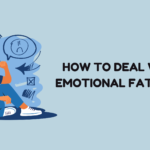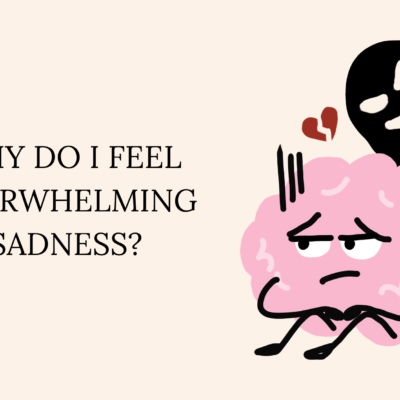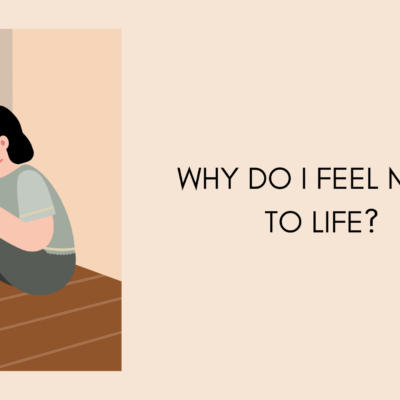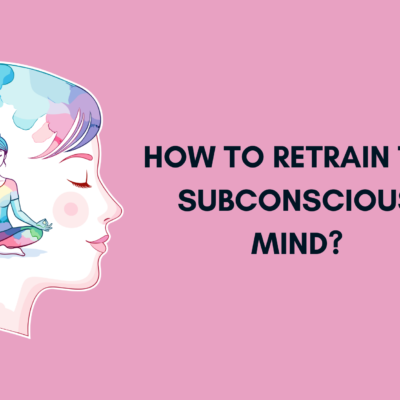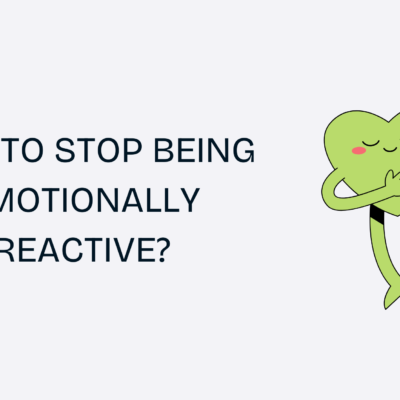Why Do I Feel Everything so Deeply: There are people who move through life with ease, barely fazed by a harsh word or a passing disappointment. And then there are people like you—who feel things deeply, intensely, often to the point of exhaustion. A song can bring tears. A stranger’s pain can linger in your heart. A small act of kindness can move you for days. A single comment can hurt more than it should.
You wonder, “Why do I feel everything so deeply? And is there something wrong with me?”
Let’s begin with the truth: Feeling deeply is not a weakness. It’s a gift—but one that requires understanding, care, and boundaries.
This article explores the possible reasons behind deep emotional sensitivity, its connection to empathy, trauma, personality, and brain wiring—and how you can manage your emotions without shutting down your beautiful heart.
Also Read:
1. You Might Be a Highly Sensitive Person (HSP)
The term “Highly Sensitive Person” (HSP) was coined by psychologist Dr. Elaine Aron and refers to individuals who process sensory and emotional information more deeply than others. Around 15–20% of people fall into this category.
Traits of HSPs:
- Easily overwhelmed by loud noises, crowds, or chaos
- Deep emotional reactions to both joy and pain
- A strong sense of empathy
- Rich inner life—often drawn to art, music, or nature
- Difficulty handling criticism or conflict
- Need for alone time to recharge
HSPs are not broken. Their nervous systems are simply more finely tuned. While this means they can feel too much, it also means they are often incredibly intuitive, creative, and compassionate.
2. You May Carry Unhealed Emotional Wounds
Sometimes, feeling deeply is not just about sensitivity—it’s about unprocessed pain. If you’ve been through emotional trauma, betrayal, neglect, or loss, your emotional system may be more reactive. Past pain acts like a bruise—every touch hurts more than it should.
Even childhood experiences, like being dismissed for expressing emotions or growing up in emotionally unstable environments, can make you more sensitive to emotions as an adult. You may subconsciously stay on high alert for hurt—because your system was trained to expect it.
That doesn’t make you weak. It means your body and mind are trying to protect you. But healing means learning to tell your nervous system, “We are safe now.”
3. You Might Be an Empath
Empaths don’t just notice others’ feelings—they absorb them. Being an empath means you pick up on emotional energy like a sponge. You walk into a room and instantly sense tension, sadness, or joy—even if no one says a word.
You may:
- Cry over someone else’s heartbreak as if it’s your own
- Avoid crowds or chaotic places because they drain you
- Find it hard to distinguish between your feelings and others’
- Want to “fix” everyone’s pain, even at your own cost
Empathy is a superpower. But without boundaries, it becomes a burden. Learning to feel with others without carrying their pain as your own is part of the emotional maturity journey.
4. Your Brain Is Wired for Depth
Some people are wired to analyze, feel, and reflect more deeply. It’s not a flaw—it’s neurological. Studies show that deep feelers often have stronger activity in brain regions associated with emotional processing and awareness.
This kind of brain is:
- Attuned to patterns and subtleties others miss
- Deeply imaginative
- Prone to overthinking and rumination
- More likely to replay conversations, words, or emotions
It’s like having high-resolution emotional software—every detail is vivid, every interaction loaded with nuance. The key isn’t to turn it off—but to learn how to manage the overwhelm.
5. You Love With Your Whole Heart
Deep feelers don’t do anything halfway. When they love, they give everything. When they lose, they grieve deeply. When they hope, they dream big. This all-or-nothing emotional depth can make life feel both beautiful and unbearable.
You may wonder, “Why can’t I just be normal?” But would you really want to live a life without intensity? Without the ability to feel sunsets, poetry, music, love, and silence so deeply?
Feeling deeply means you experience life in full color. Yes, it also means the dark hues are harder to bear—but the brilliance of your joy, compassion, and wonder is unmatched.
6. Society Often Doesn’t Validate Deep Feelers
We live in a world that celebrates hustle, toughness, emotional detachment, and “moving on.” Deep emotions are often labeled as “too much,” “overreacting,” or “being dramatic.” As a result, sensitive souls grow up ashamed of their feelings, trying to hide them.
You may have heard:
- “Stop crying over everything.”
- “You’re too emotional.”
- “Don’t take it so personally.”
So you internalize the idea that something is wrong with you. But the truth is: Your feelings are valid. Your emotions are your compass. You are not too much—others may just not be equipped to hold what you carry.
7. Your Depth Is Needed in This World
While others rush through life, you pause to notice. While others numb, you feel. While others look away, you care. That is not weakness—that is your calling.
Deep feelers become:
- Writers who translate emotion into healing words
- Artists who express what others can’t say
- Therapists and healers who sit with others’ pain
- Friends who show up with presence, not platitudes
This world doesn’t need more people who feel less. It needs more people who feel deeply—and learn how to channel that depth into compassion, creativity, and quiet strength.
8. How to Manage Your Deep Emotions Without Shutting Down
Feeling deeply doesn’t mean drowning in emotion. Here are ways to care for your emotional depth:
A. Name the Feeling
When you name your emotion, you give it shape. Instead of saying “I’m overwhelmed,” try:
- “I feel unappreciated.”
- “I’m grieving something that’s not even gone yet.”
- “I’m holding energy that might not be mine.”
Clarity softens chaos.
B. Write It Out
Journaling helps you move the emotion from your body to paper. Try writing:
- “Right now, I feel…”
- “What this reminds me of is…”
- “What I need most is…”
Let your inner voice speak without judgment.
C. Protect Your Energy
Say no. Unplug. Walk away. You are not obligated to carry every emotion that enters your orbit. It’s okay to rest. It’s okay to protect your peace.
Create emotional boundaries like:
- “I can care without rescuing.”
- “Their feelings are not my responsibility.”
- “I deserve space to breathe.”
D. Let Your Body Move It
Emotions live in the body. Cry. Shake. Dance. Walk. Stretch. Breathe. Do something physical to let the energy flow instead of freeze.
E. Talk to Someone Who Gets It
Deep feelers often feel misunderstood. Talk to a therapist, friend, or community who honors emotional depth. You don’t need fixing—you need space to be heard without shame.
9. You’re Not Alone in Your Depth
It’s easy to feel isolated when your emotional world is so vast. But there are others like you—quiet souls with stormy hearts, people who cry in silence, who see too much, feel too much, love too hard.
You are not alone.
You are not broken.
You are not weak.
You are simply human in the most courageous way—alive to the full spectrum of feeling.
Final Thoughts: Your Depth Is a Mirror of Your Strength
So why do you feel everything so deeply?
Because you care.
Because your soul is open.
Because your heart refuses to grow numb.
Because you were born to love with intensity, not indifference.
Because this world, broken as it is, still moves you.
And that is not something to hide.
That is something to honor.
Let your depth guide you—but don’t let it drown you. You are allowed to feel deeply and take care of yourself. You are allowed to hold space for others and create boundaries for your heart.
The goal is not to feel less—but to feel wisely, gently, and with strength.
You are not “too much.”
You are exactly enough.


